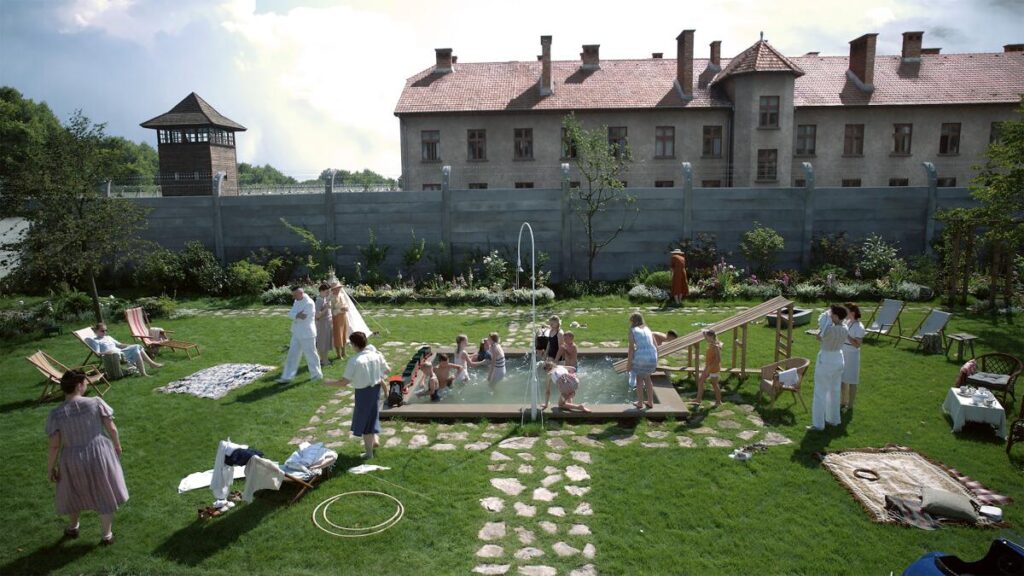The Zone of Interest is a powerful commentary on the mundane cruelty of apathy
Written by Ian Thomas Malone, Posted in Blog, Movie Reviews, Pop Culture
The breadth and depth of the broader World War II genre, especially the entries that focus on the atrocities of the Holocaust, have immortalized horrors that humanity cannot afford to forget. The most effective historical films tend to be the ones that teach us something ugly about the present that we take for granted. The film The Zone of Interest dedicates its narrative to one simple question anyone who’s ever learned about the Holocaust is bound to have asked: how could anyone let that happen?
Over a million Jewish people were killed at Auschwitz during World War II. Director Jonathan Glazer keeps his narrative at arm’s length from the camp itself, instead focusing on the home life of Rudolf Höss (Christian Friedel), who was commandant of the camp for three years during the war. Höss and his family lived in a house that shares a border wall with the camp, his wife Hedwig Höss (Sandra Hüller) working hard in the garden to build an idyllic sanctuary away from the horrors happening right next door. Like his wife, Rudolph spends his days buried in his work, always too busy to process the horrors he’s in charge of perpetuating.
Largely shot like a documentary, with multiple cameras rigged inside the Höss family home and frequent long takes, Glazer presents an approach that feels intentionally hands-off. The director doesn’t really need to worry about his audience having a familiarity with the subject material. Instead, The Zone of Interest aims to cast a light on the mundane nature of evil. Real life doesn’t have secret villain layers. Instead, there are far uglier realities, like a swimming pool that’s only a few meters away from a crematorium.
Friedel and Hüller both perform well under untenable circumstances as lead actors in a film with no protagonists. Hüller plays Hedwig like a selfish housewife, only able to see the blessings that a life at a post like Auschwitz had afforded to her family, a reality of her own choosing. Friedel threads a more subtle needle, a boring administrator glued to his singular task.
The 105-minute runtime flies by, an impressive feat for a film that deliberately keeps a fair amount of distance between its narrative and its audience. There are a few occasions where Glazer practically forces his viewers to be alone with the cruelties he structures the film around while never actually showing the camp in operation. The deafening silence that lies at the core of The Zone of Interest is nauseatingly powerful, an impressive feat of filmmaking within a well-trodden genre.
We all know the horrors of the Holocaust. Modern audiences would do well to remember that genocide does not happen in a vacuum. It takes the work of countless people such as Rudolf Höss to perpetuate the wheels of destruction, as well as the apathy of all who surround them. Few films can convey such a message with so light a touch. The Zone of Interest isn’t an easy film to watch, but it’s quite impossible to forget.











